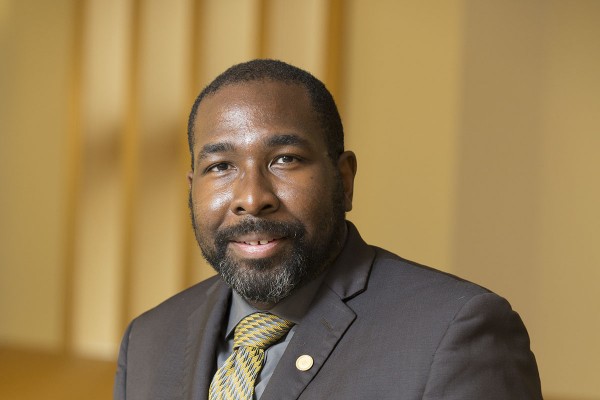Students win Breast Cancer Startup Challenge
An interdisciplinary group of graduate students including Washington University’s (from left) Anurag Agarwal, Whitney Grither and Hirak Biswas was one of 10 winning teams in the Breast Cancer Startup Challenge. The international competition aimed to bring breast cancer discoveries out of the lab and closer to market to help patients.
NF symposium to focus on tumor disorders
The School of Medicine is home to an internationally renowned center for multidisciplinary research of neurofibromatosis and comprehensive care of patients affected by it. The university’s Neurofibromatosis Center will host a symposium May 16 that will bring together patients, their family members and researchers to discuss the latest insight into the diagnosis and treatment of NF.
STL To Do: Lost in the Trees at Old Rock House
WUSTL media specialist and LouFest founder Brian Cohen recommends tonight’s Lost in the Trees concert. The band’s newest album bursts with energy and catchy songwriting.
Carter appointed to innovation and entrepreneurship leadership post
Dedric Carter, PhD, has been appointed to the newly created position of associate provost and associate vice chancellor for innovation and entrepreneurship at Washington University in St. Louis. He has been associate dean for international education and research and professor of the practice in the School of Engineering & Applied Science. The appointment is effective June 1, according to Holden Thorp, PhD, university provost and executive vice chancellor for academic affairs; and Henry S. Webber, executive vice chancellor for administration.
Genome regions once mislabeled ‘junk’ linked to heart failure
Large regions of the genome that were once referred to as “junk” DNA have been linked to human heart failure, according to research led by Jeanne Nerbonne, PhD, of Washington University School of Medicine in St. Louis.
Workshop held to help recruit women, minorities
Participants in the Faculty Reach Out Program (FROP), held earlier this month at the School of Medicine, attended a two-day workshop that included meetings with faculty to discuss clinical and research interests, tours of research facilities and networking opportunities with other FROP participants. FROP was initiated to create a pathway to recruit women and underrepresented minorities for faculty appointments.
Dining-Out military event held at Olin
Retired Lt. Gen. George J. Flynn, who served as deputy commandant for combat development and integration for the U.S. Marine Corps, makes a point during his remarks at a formal Dining-Out event April 17 in the Knight Center. Sponsored by the Olin Veterans Assocation, the Dining-Out event is a formal military tradition for members of a company or other unit aimed at fostering camaraderie.
WUSTL Wind Ensemble April 29
Long before John Travolta fumbled her name at the Academy Awards, Idina Menzel was known as the star of “Wicked,” Stephen Schwartz’s musical reimagining of “The Wizard of Oz.” On April 29, the WUSTL Wind Ensemble will present excerpts from “Wicked,” “Phantom of the Opera,” “Star Trek” and more in the Ballroom Theater of the 560 Music Center.
Aging expert Stone to deliver annual Friedman Lecture May 8
Robyn I. Stone, PhD, noted researcher and leading international authority on aging and long-term care policy, will deliver the annual Friedman Lecture Thursday, May 8, in Brown Hall on the Danforth Campus of Washington University in St. Louis. A panel discussion will follow. The event will take place from 8:30 a.m. to noon and is free and open to the public. For details and to register, visit here.
New study examines disparities in Medicaid spending on children in the welfare system
In the new health-care climate of the Affordable Care Act and efforts to expand Medicaid to accommodate more individuals and children, the need to closely examine ways to best use government funding is becoming increasingly evident. A new study from the Brown School examines racial and ethnic differences in Medicaid expenditures for children in the welfare system who use psychotropic drugs.
View More Stories

